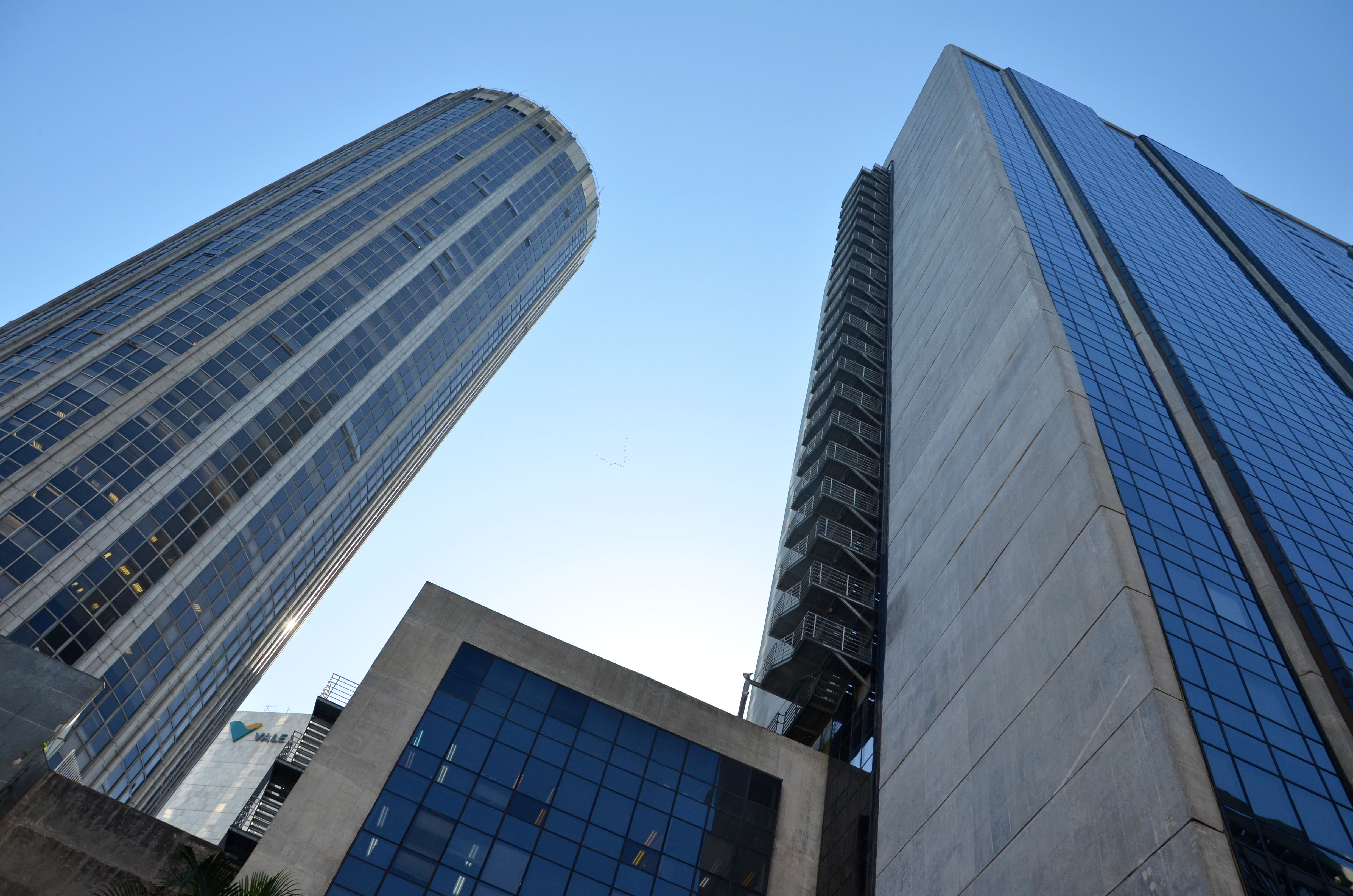Why Rio de Janeiro?
Rio is the second most populated city in Brazil and the sixth in Latin America. With a Gross Domestic Product (GDP) of approximately BRL 350 bilion, the city of Rio de Janeiro has the second largest economy in Brazil and is home to large companies and corporations in the country.
Home to many universities and educational institutions (such as UFRJ, UERJ, IMPA, PUC, FGV, Ibmec, among others), Rio is considered the second largest reference in research centers in Brazil. According to a survey performed by the Ministry of Tourism, Rio is still the most popular destination for Brazilians to visit.

Lifestyle:
Rio de Janeiro is know for its relaxed and cheerful lifestyle, presenting a culture rich in music, dance, gastronomy and festivities.
Natural beauties:
The city has some of the most beautiful landscapes in the world, with stunning beaches, magnificent mountains, waterfalls and much more. With over 90 km of coastline and 30% green area, including the largest urban forest in the world, the city of Rio has been recognized by UNESCO as a Cultural Heritage of Humanity for its cultural landscape.


Business:
Rio de Janeiro is an important financial and commercial center with a growing economy and plenty of business opportunities.
Diversity:
The city is a cultural melting pot, with a unique mix of African, European and native Brazilian influences, which are reflected in its music, gastronomy and lifestyle.


Sports:
Rio de Janeiro is a popular destination for sports such as soccer, surfing and beach volleyball, offering its residents lots of opportunities to participate and watch exciting sports events.
Education:
The city has some of the best universities and schools in the country, attracting students from all over the world.

What are the benefits of investing in Rio?
With a vibrant and diverse economy, the city of Rio de Janeiro is a strategic economic center thanks to its geographic location, economic and political stability as well as qualified and multicultural workforce.

Strategic location:
Rio de Janeiro is located in the southeast of Brazil, which makes the city an important center for business and trade in the country and in South America.
Diverse economy:
The city has a diversified economy, with sectors ranging from oil and gas to tourism and entertainment, which offers many opportunities for investors.


Infrastructure:
Rio de Janeiro has a modern infrastructure, with three commercial airports, a thriving port area, roads, subway, trains, express bus lines (BRT), light rail (VLT) and other transportation facilities that help connecting the city with other parts of the country and the world.
Growing real estate sector:
The real estate market in Rio de Janeiro has grown in recent years, with many opportunities to invest in residential, commercial and tourism projects.


Tourism:
Rio de Janeiro is a popular tourist city, with millions of visitors every year, which offers many opportunities to invest in hotels, restaurants and other activities related to tourism. In 2022 alone, the sector's service tax revenues reached 179.6 million, almost twice as much as last year, showing a strong recovery in the post-pandemic period.
International events:
Rio de Janeiro is an important center for international events, such as the World Cup, the Olympic Games and Carnival, which increases the city's visibility and creates many opportunities for business and investments. In addition, in 2023, for the first time we will host the Web Summit, one of the largest technology events in the world, stage for a lot of networking between national and global players.


Tax Incentives:
The Municipality of Rio de Janeiro offers tax incentives for investors seeking to establish or expand their businesses in the city, which can help reducing costs and increasing profits. For further details on tax incentives, click here.
How do I start my business?
Opening a company in Rio has never been easier and faster!
With the Economic Freedom Law, regulated by the Secretary of Economic Development, Innovation, and Simplification, low-risk activities that are conducted in one's own residence, in an area smaller than 200 m², or virtually, no longer require prior location consultation.
The entrepreneur simply needs to fill out a form on Carioca Digital for the formalization with the City Hall. From now on, your company can start operating.
Additionally, it is necessary to register your company with the competent Commercial Registry. With this registration, you will be able to request the feasibility analysis of the company, compliance with Fire Brigade regulations, and potential restrictions on the State Registration. Next, fill out the Basic Document for Entry (DBE, in portuguese) into the National Registry of Legal Entities on the REDESIM website and apply for the CNPJ (Brazilian Company Registration Number). Upon approval, you will receive the registered Social Contract and the CNPJ nunmber. This way, your company will be officially legalized!
287 professional activities considered low risk will have their operating permits issued within minutes. This measure directly benefits small businesses and self-employed professionals, such as:
- Hairdressers
- Seamstresses
- Religious activities
- IT Developers
- Communication Professionals
- Small retail and wholesale businesses
*It's important to note that the establishment is not exempt from other licenses, such as environmental and health permits, if required.
To learn how to invest in the Marvelous City, download our exclusive guide with all the information you need.
How to finance my startup?
In the initial phase, the money used to develop the prototype may come from the entrepreneur himself/herself, family or friends.
After the CNPJ is issued, the capital used may come from different sources:
Angel investor: specialized in supporting early-stage projects. They are experienced, successful, confident, understand market trends and opportunities, have direct involvement in what in fact happens, under a shareholder’s agreement. The angel’s role is to assist entrepreneurs in making the company work, but angel investor’s money (or partner investor) will not solve everything.
Main groups: Anjos do Brasil, GV Angels, MIT Alumni Angels Brazil, Gávea Angels, Insper Angels, among others.
Seed capital: initial moment in which the angel investor invests enough money in the company, as the objective is to sell without losing sight of respect for the environment and society.
Venture capital: mode of financing companies in exchange for equity participation, implying joint responsibilities for both investors and entrepreneurs. They apply resources to startups that have already tested their products and are ready to grow, bringing the investment partners to the company.
Main groups: Abvcap, Farol Ventures, Antera GR, Gera Capital, Atmos Capital, among others.
Collective investment (crowdfunding): the objective is to bring together several people who may collaborate with small amounts and, thus, make an idea, a business or a project viable, receiving or not, a counterpart for this. It is a quick and relatively simple way to capture amounts for the execution of an idea or project with popular appeal and a low investment.
Main platforms: Bloxs Investimentos, BRAAIM, Investweb, Platta, MyFirstIPO, Benfeitoria, among others.
Business environment in Rio
Rio de Janeiro city stands out for its low estimated time needed to open a business (92 points) and high level of city transparency (81.4 points), according to the Competitiveness Ranking of the CLP Municipalities in 2022.
Rio’s economy shows a good score in several aspects: GDP per capita (BRL 52,833), availability of credit per capita (BRL 26,479), degree of economic complexity (97.5 points, 5th in the ranking) and average income from formal work (BRL 3,999). In addition, the city also stands out in human capital and creative sector indicators, being among the top 20 municipalities in terms of availability of resources for research, development and jobs in the creative sector.
Connected Smart Cities (Urban Systems): the ranking maps the smartest and most connected cities in the country using analysis of indicators. The study analyzes municipalities with more than 50,000 inhabitants and ranks the top 100 based on criteria such as mobility, entrepreneurship, governance, economy, etc.
Rio de Janeiro city was ranked 10th place in the General Ranking, being well ranked in the criteria of mobility (5th place), technology and innovation (4th place), entrepreneurship (3rd place) and economy (8th place).
Useful Information
State Regulatory Agencies
- (AGENERSA) - Regulatory Agency for Energy and Basic Sanitation of the State of Rio de Janeiro
- (AGETRANSP) - Regulatory Agency for Granted Public Services of Water, Rail, Subway and Highway Transportation of the State of Rio de Janeiro
Federal Regulatory Agencies
- (ANATEL) - National Telecommunications Agency
- (ANP) - National Agency of Oil, Natural Gas and Biofuels
- (ANS) - National Supplementary Health Agency
- (ANVISA) - National Health Surveillance Agency
- (ANTT) - National Land Transport Agency
- (ANTAQ) - National Water Transport Agency
- (ANEEL) - National Electric Power Agency
- (ANA) - National Water Agency
Chambers of Commerce
The city of Rio de Janeiro has several chambers of commerce, which are organizations that represent and promote local companies and businesses. Some of the main chambers of commerce in Rio de Janeiro are:
- (Amcham Rio) - American Chamber of Commerce of Rio de Janeiro
- (AHK Rio) - Brazil-Germany Chamber of Commerce and Industry of Rio de Janeiro
- (CCFB Rio) - France-Brazil Chamber of Commerce of Rio de Janeiro
- (CCAB) - Arab-Brazilian Chamber of Commerce of Rio de Janeiro
- (CCIJB) - Japanese Chamber of Commerce and Industry of Rio de Janeiro
- (CCIBC Rio) - Brazil-China Chamber of Commerce and Industry of Rio de Janeiro
Consulates
- Consulate General of the United States of America
- Consulate General of the United Kingdom
- Consulate General of France
- Consulate General of Germany
- Consulate General of Portugal
- Consulate General of Argentina
- Consulate General of Canada
- Consulate General of Spain
Trade Associations
